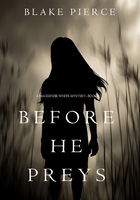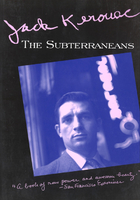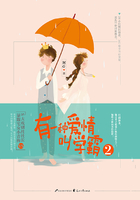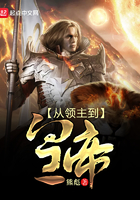THE RIVER BENEATH CREAMERY Bridge had changed its path at some long-ago point in time, as it carved its way down West Hill through the soil and then the rock. Although it fell in a clean, thick waterfall when I knew it, clearing the rocks behind it by at least two feet and landing in a roaring, thick white blur that obscured the deepest part of the cold, clear pool beneath it, you could see that it had once run down the rock nearby at an angle of forty-five degrees, leaving a long, smooth face that was almost always wet from summer rain and the mist from the falls. And because it sat in the shade of trees that reached out from the riverbanks trying to find sunlight in this deep and narrow gorge, it was nearly always covered in a thin layer of soft moss during the summer. This slide was our favorite of the many things to do at Creamery Bridge and was the sole reason that we wore swimsuits, which made it possible to glide down the rock face and into the river. By the end of any summer, the seats of our suits would be worn and see-through, or ripped completely open.
My mother and her friends favored impractical string bikinis, often crocheted, or wore nothing at all, but thankfully they stayed mostly hidden in the tall grass that grew on the island formed by the river's divergent paths, just below the falls and the pool. If they swam at all, it was a single jump from a rock, or in my mother's case, a perfect lean dive. Because the water was so unbearably cold, they would quickly climb out and onto the grass, pull on their shirts, and go back to smoking unfiltered Lucky Strike cigarettes and drinking beer from cans. We, their children, all of us small, would stay in the water until we were pulled out, numb and hungry and bruised from stumbling on the rocks and sliding down the moss-covered face. We knew that if we stayed in long enough, we would begin to get used to the temperature and that eventually it would hardly feel cold at all. We would watch our mothers, sitting cross-legged, deep in their serious conversations, arms waving in the air while points were made, not noticing that we were climbing too high on the rocks or swimming too close to the falls, which would push us under and then spit us out. Even if they had wanted to tell us not to do something, we would not have been able to hear them over the rush of the waterfall.
Once my uncle Mike dove from the top of the falls without remembering to take his glasses off, and I spotted them through the clear water as they slowly sank toward the bottom of the pool. I held my breath and dove from the ledge straight down, kicking as hard as I could, until the pressure in my ears and the feeling in my lungs told me to turn around, but not before I managed to hook the thin wire frames around my hand as they continued their fall to the bottom, which nobody had ever reached. My lungs had no air left in them when I turned around and swam toward the top. My chest was beginning to ache when I could finally see my uncle's tall frame standing over me just before my numb hand holding on to his glasses broke the surface. He pulled me out with a swift yank, his big calloused hand around my forearm, and studied my face carefully as he wrapped the wire frames around his ears. He was looking at me as though he was seeing me now for the very first time as something other than an annoying child. "Tupy," he said, "thanks."
Fred Fuller, an old friend of my mother and my uncle, moved with his two daughters to Vermont in the summer of 1976. Suddenly, we were with them most of the time, at the schoolhouse and every day at Creamery Bridge. Fred was a tall, thin man with a long beard and a bald spot on the very top of his head. He liked to lounge about in the long grass, naked and pale, as though this was nothing out of the ordinary. I feel certain now, just as I did then, that there are few things as ridiculous to look at as a naked man with a beard. Except maybe a naked man with a beard and a bald spot. Years later, when I was in college, I had an older boyfriend who grew a beard in honor of ski season. I liked him and his warm double bed very much. (In those days, at state colleges at least, if you wanted to sleep in a double bed, you had to date either a professor or someone like Bill, who was still enrolled in college in his mid-twenties partly for the discounted student ski pass.) When Bill got out of bed in the morning, I buried my head under the blankets so that I would not catch sight of him. I assume he thought that I was young and shy and not used to seeing naked men, but the truth was that I had seen more than my fair share of them and did not want to be reminded of Fred Fuller, with his thin arms and silly, proud nudity. Once, I took a quick peek as Bill pulled on his wool socks. Yes. A naked man with a full beard still looked ridiculous, no matter what my age or feelings toward said man. A naked man with a beard wearing only socks and looking underneath the bed for his long underwear is, by the way, enough to render a girl single no matter how cold the winter or how narrow and dull her dorm-room bed.
Fred was like my mother and my uncle Mike in that he came from a wealthy family and lived, just barely, off the fumes of interest that some well-protected trust fund leaked. He was raising his daughters alone and made it clear to everyone that the more they were exposed to—the more places, the more people, the more adventures—the more well-rounded people he believed they would become. He treated them like adults, which seemed to me to be an excuse for not paying attention to them. It was important to him that his children were seen as different, as special, and this, more than anything, made me feel bad for them because I knew that the only thing children want is to feel that they are the same as other children, that they belong. Fred seemed interested in teaching us things that children would not typically learn and, usually, did not really need to know. One morning, he came to the table where we were sitting in our swimsuits eating spoonfuls of peanut butter straight from the jar for breakfast and showed us, in slow, serious steps with exaggerated movements, how to use a knife to remove the thin bark from a birch twig. "Always cut with the blade away from you," he said, "and you won't cut yourself." I tried to imagine needing to remove the bark from a tree and quickly decided that this was not at all something I planned to ever do, and held my breath while I watched the morning sun grow heavier through the window, anxious for this to end so that we could walk together to Creamery Bridge.
Chrissy was just a year older than we were, maybe eight; Meliah was younger, only four or maybe five. Chrissy wore a swimsuit that was sized for a full-grown woman. It sagged in the chest and around her legs. She wanted mostly to lie in the sun with her long, dirty-blond hair fanned out behind her when we were at the Creamery Bridge because she hoped to get a tan and for her hair to lighten. This seemed very boring and time-consuming to my sister and me, who only sat on the rocks in the sun when we had become too cold to form sentences, or to eat, if we had remembered to bring the jar of peanut butter with us, which we rarely had, or if we were hurt and needed a moment to rest. Meliah had a swimsuit that was meant to make her look like she was wearing a tuxedo with no legs or sleeves, but we had just been reading about penguins and mistook it for one. I treaded in deep water in front of her as she stood on the riverbank and explained to her that if she was a penguin, she should be able to swim in even the coldest water, and that she should be able to dive in headfirst, with her arms at her sides. No, she explained to me, that was not possible because she did not know how to swim, and so instead she pulled herself close to the edge and put her feet and ankles into the water. When I put my head under and opened my eyes I could see her toes, curled up against the cold, and the shape of her head and her dark hair.
If we had been told to watch Meliah earlier in the day, we had forgotten. Now it was almost midday and we still had not gone down the slide, because Chrissy could not be convinced that it was fun, so I went there alone. The falls were so loud that I didn't hear them both behind me, and it was not until we were all at the top that I saw them. Chrissy had followed me, and Meliah had followed her, and now Chrissy had turned around to find her small sister, scared and cold, standing in her little penguin suit, at the top of a sheer, slick rock face that ended in deep, cold water. She was shouting for her sister to turn around, to walk back across the top of the face to dry ground, and Meliah seemed to be able to hear or at least understand her, but when she tried to turn around on the steep incline, her hands held out at her sides and her steps wobbly and unsure, she fell and began sliding quickly toward the water. Chrissy's mouth hung open. She was shouting for her father, but I knew that there was no point to this because we were so close to the falls. I had stood in that same spot and watched my mother and my uncle throw their heads back and laugh and shout at one another, without hearing anything at all. I sat down quickly and pushed myself off the top of the incline toward the water with my hands.
I shot past Meliah in the water and had to swim back toward the ledge to reach her. I could see her underwater: Her long black hair was wrapped around her face and neck, covering her eyes, both of her arms were thrashing above her head, and her mouth was filling with water. As soon as she could feel me near her, she grabbed my neck and shoulders and wrapped her arms around them, clinging to me with all four limbs and pulling us both down, then scrambling to push herself on top of me and pushing me down further. I knew nothing about how to save a drowning person. I didn't know that I was supposed to turn her around so that her back was against my side so that she couldn't grab me and pull me under. I didn't know how to pull her with swift kicks or to push her away when I needed to go for air. I only knew how to swim with no air in my lungs, as hard as I could, carrying all of our weight and moving so slowly that I thought we would never reach the edge, until we were close enough to the steep, cut bank that I could push her against it, in time to be swept up by her father, who had finally seen us and had run toward us. I pulled myself onto the bank and spread my tired arms wide and filled my lungs with air.
There was a cold shadow over my face and then a hand on my shoulder. I opened my eyes to see Fred, or at least the part of him that I had been actively avoiding eye contact with, looking me right in the eye. I squeezed my eyes shut and covered my face with both hands and heard him say, as if I needed to be told, "You saved her life, Tupy. Thank you." Oh, please put some pants on, I thought, please, please, please put some pants on. And then he was gone, carrying Meliah in her little black-and-white penguin suit on his hip, her arms wrapped around his neck, back to the tall grass where the other adults still sat. It was hard for them to know, above the roar of the falls, what had happened, but Fred, Meliah, Chrissy, and my sister and I had all seen.
My mother told me that night that she didn't worry about me when we were at Creamery Bridge because I was a strong swimmer, but I wondered if maybe it was the other way around, if I had become a strong swimmer because there was nobody to worry over me. After that day I began to go swimming alone, without waiting for anyone, or even telling anyone. I wasn't afraid of that place or of the water; instead, being there made me feel strong. Being inside and being alone felt lonely, but being outside, near the water, did not. I would run down the path, and then the gravel road that led from the schoolhouse to the bridge, and jump down the rocky path that dropped along the waterfall to the ledge that juts out still above the cool, clear pool, where Mr. and Mrs. Tyler had had their picnic, in the prettiest spot in all of Vermont, unless of course there happened to be, lounging in the grass as though nothing was out of the ordinary, a naked man with a beard and a bald spot.















